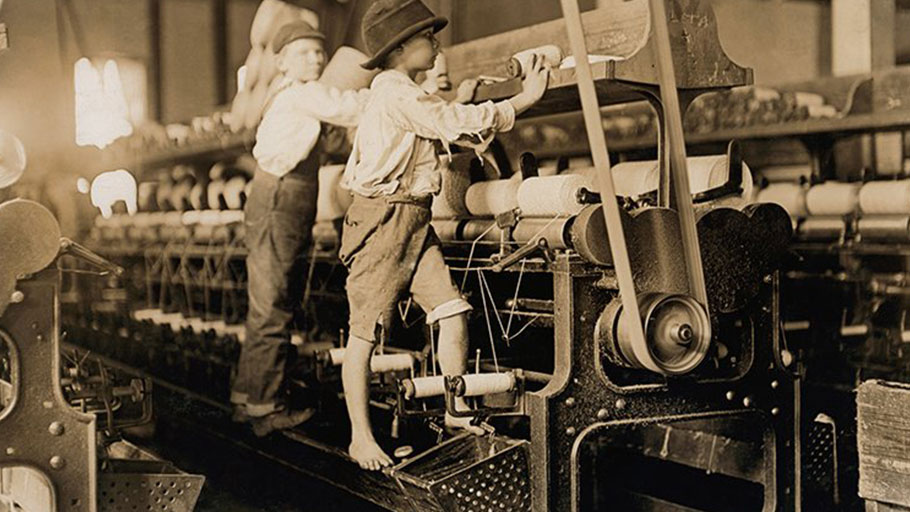By Travis Gettys
White supremacists have been promoting the myth that the first slaves brought to the Americas were Irish, not African — but a historian says there’s simply no evidence to back their racist claims.
Liam Hogan, a research librarian at the Limerick City Library, set about debunking the myth after spotting a widely shared Global Research article in 2013 and realized its potential for misinformation, reported Hatewatch.
“It was quite clear to me then that many would never engage with the history of the transatlantic slave trade when they had this false equivalence to fall back on,” Hogan told the website. “I think that’s what convinced me that I needed to put the record straight.”
The myth essentially equates indentured or penal servitude with racialized perpetual hereditary chattel slavery, Hogan said.
Racists claim the Irish slave trade began in 1612 and was not abolished until 1839, and they insist “white slavery” has been covered up by “politically correct” historians.
“The various memes make many claims including (but not limited to) the following: that ‘Irish slaves’ were treated far worse than black slaves, that there were more ‘Irish slaves’ than black slaves, that ‘Irish slaves’ were worth less than black slaves, that enslaved Irish women were forced to breed with enslaved African men and that the Irish were slaves for much longer than black slaves,” Hogan said.
“This is then invariably followed up by overtly racist statements,” he added. “For example, ‘Yet, when is the last time you heard an Irishman bitching and moaning about how the world owes them a living?’”
Hogan hasn’t isolated the myth’s first appearance on social media, but it’s been a common trope on the white supremacist website Stormfront since at least 2003 and has been trotted out as an argument against reparations for slavery and to attack the Black Lives Matter movement.
He pointed to a 2014 post on Alex Jones’ Infowars website that attacked both Black Lives Matter and reparations by promoting several falsehoods about “Irish slavery.”
“It appropriates the massacre of around 132 African victims of the genocidal transatlantic slave trade in order to diminish it,” Hogan said, referring to the Zong massacre in 1781. “If you look at the Infowars version of the meme you’ll see it has even appended an extra zero, making the number of victims amount to 1,302, while adding that ‘these slaves weren’t from Africa, these forgotten souls were from Ireland.’ This shameless appropriation is then used by Infowars to mock calls for reparatory justice for slavery.”
The myth has become nearly ubiquitous in social media discussions on slavery and race — and it was even promoted by a blogger on the liberal Daily Kos website.
“There was almost no situation where the meme was not used to derail discussions about the legacy of slavery or ongoing anti-black racism,” Hogan said. “Starting with Ferguson and with almost every subsequent police killing of an unarmed black person from late 2014 through 2015, the meme was used to mock and denigrate the Black Lives Matter movement. It is in a sense the ‘historical’ version of the disingenuous All Lives Matter response to demands for justice and truth telling.”
Hogan has collected hundreds of examples of the fallacious argument, which he has shared on Twitter and Tumblr, and he said some of those memes have been shared hundreds of thousands of times on Facebook.
The myth is especially popular among Confederate apologists, and Hogan cites several examples of its deployment during the debate over Confederate flag displays in the wake of the fatal shootings of nine black churchgoers by a white supremacist.
“This year I’ve tracked the meme being shared by the Texas League of the South, History of the True South, Love My Confederate Ancestors and the Sons of Confederate Veterans,” Hogan said. “They seem to believe that this meme somehow negates the fact that the Confederacy fought a war to perpetually enslave millions of African-Americans and their descendants.”
The myth is often supported with citations to the books “To Hell or Barbados,” by Sean O’Callaghan, and “White Cargo,” by Don Jordan and Michael A. Walsh — both of which are historically questionable, according to Hogan, but he said most articles about “Irish slaves” don’t even quote from those sources.
Instead, Hogan said most of those articles rely heavily on an unreferenced blog post and the self-published work of Holocaust denier Michael A. Hoffman II.
Hogan said his concerns are shared by at least 81 academics and historians, and he hopes to set the record straight in his own book.
“I would like to reclaim the history of Irish servitude in the 17th century Anglo-Caribbean and present it in context for a general audience,” he said. “The Cromwellian policy of forced transportation to the colonies in the 1650s (which included an estimated 10,000 Irish people) understandably scars our collective memory and it deserves both respect and close attention from anyone interested in the history of the unfree labor systems in the Atlantic world.”
He said the myth’s appeal reveals an essential element of racist thought — and the way those beliefs are exploited to justify discriminatory laws.
“The racism then flows as these various groups of Neo-Nazis posit why whites can overcome a ‘worse’ situation than blacks and ‘do not whine about it,’” Hogan said. “So the ‘get over it’ racism that so often accompanies the meme is not about history at all. It goes much deeper than that.”
“Their belief is that non-whites can’t move on due to racial inferiority or social pathology,” he continued. “So through false equivalence and erasure, they attempt to remove history as a determinant so that they can claim the current socioeconomic position and mass incarceration of black people in the U.S. is due to racial inferiority.”
This story was originally published April 20, 2016.














